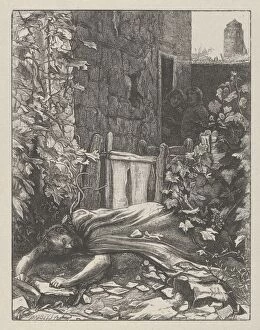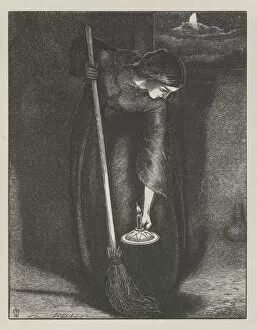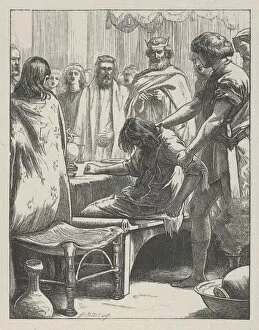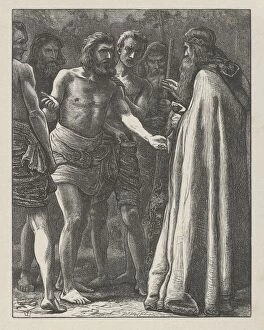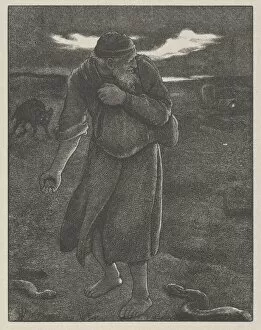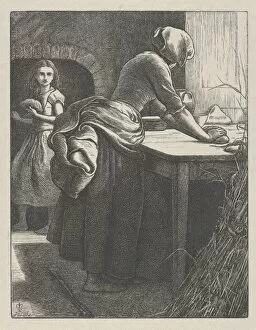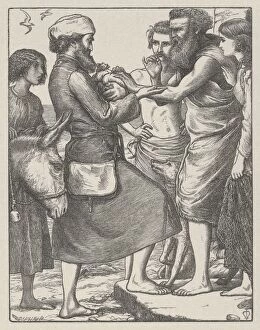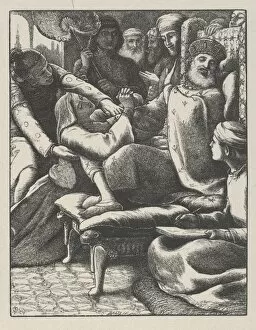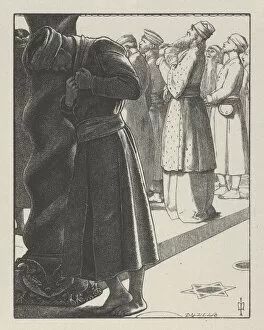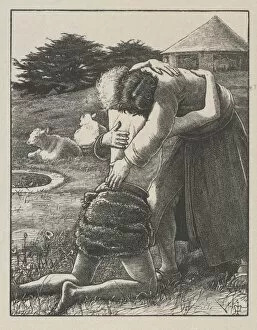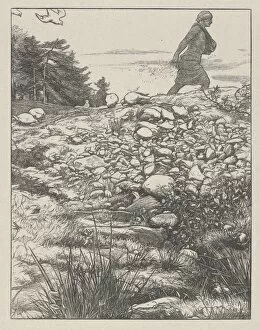After Sir John Everett Millais Collection
"After Sir John Everett Millais: A Captivating Journey Through the Parables of Our Lord Saviour Jesus Christ" Step into a world where art and spirituality intertwine
For sale as Licensed Images
Choose your image, Select your licence and Download the media
"After Sir John Everett Millais: A Captivating Journey Through the Parables of Our Lord Saviour Jesus Christ" Step into a world where art and spirituality intertwine, as we delve into the captivating works inspired by Sir John Everett Millais. This renowned artist masterfully captured the essence of various parables from our Lord Saviour Jesus Christ, leaving us in awe of his talent and profound interpretation. In "The Wicked Husbandman, " Millais brings to life the cautionary tale of those who misuse their blessings, reminding us to be faithful stewards of God's gifts. With intricate brushstrokes and vivid colors, he transports us to a moment frozen in time, urging introspection on our own actions. "The Lost Piece of Silver" unveils an emotional scene where a woman searches tirelessly for her lost treasure. Through this parable, Millais reminds us that every soul is precious in God's eyes and that He rejoices when even one sinner repents. The artist's attention to detail allows us to feel the desperation and hope within this powerful narrative. Millais' rendition of "The Marriage Feast" invites us to witness joyous celebrations amidst opulent surroundings. As we gaze upon this masterpiece, we are reminded that salvation is open to all who accept God's invitation with open hearts. The artist skillfully captures both human emotions and divine grace within this enchanting portrayal. With "The Labourers in the Vineyard, " Millais takes us on a journey through fairness and generosity. This thought-provoking piece challenges societal norms by highlighting God's boundless love for all His children regardless of their circumstances or timing. It serves as a reminder that true worth lies not in earthly possessions but rather in embracing divine purpose. In "The Tares, " Millais explores themes of good versus evil with striking imagery that lingers long after viewing it. This allegorical representation compels viewers to reflect upon their choices and the consequences they may bear.

